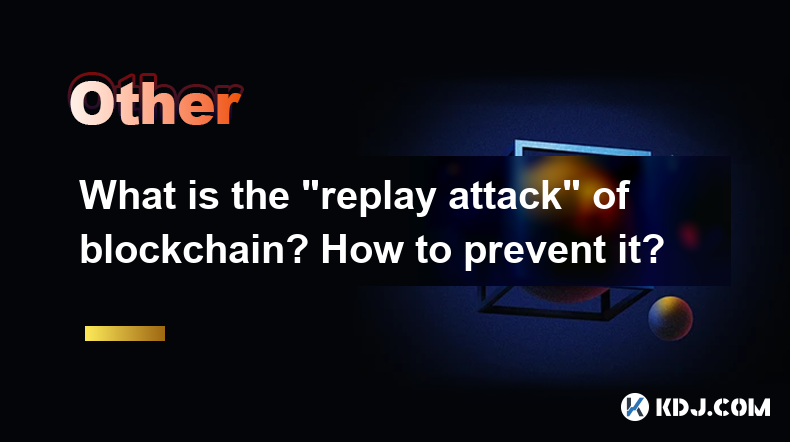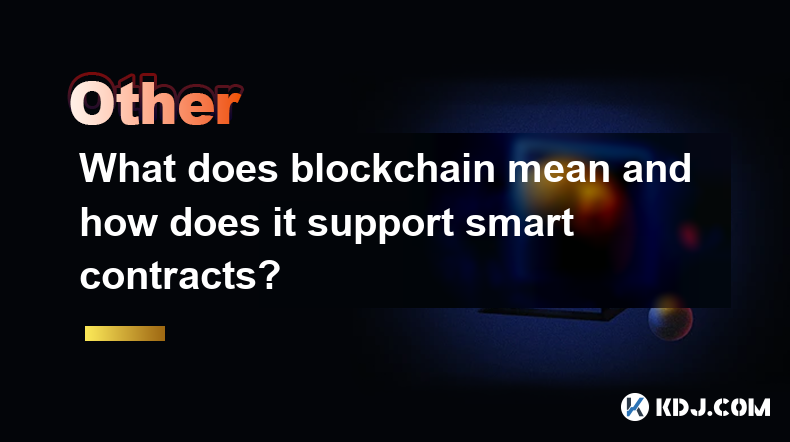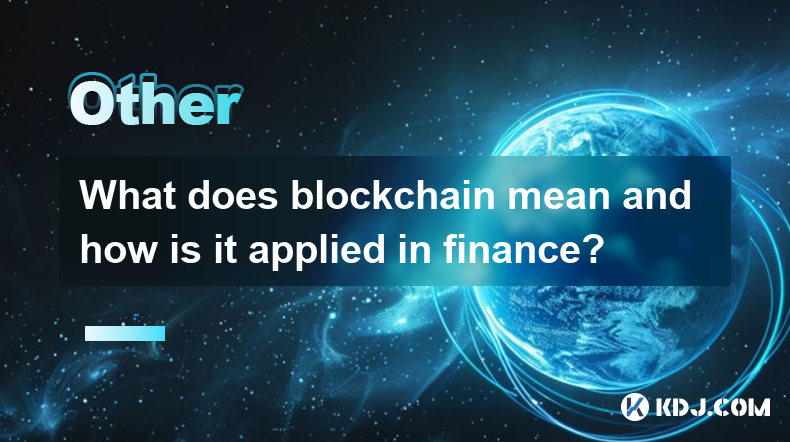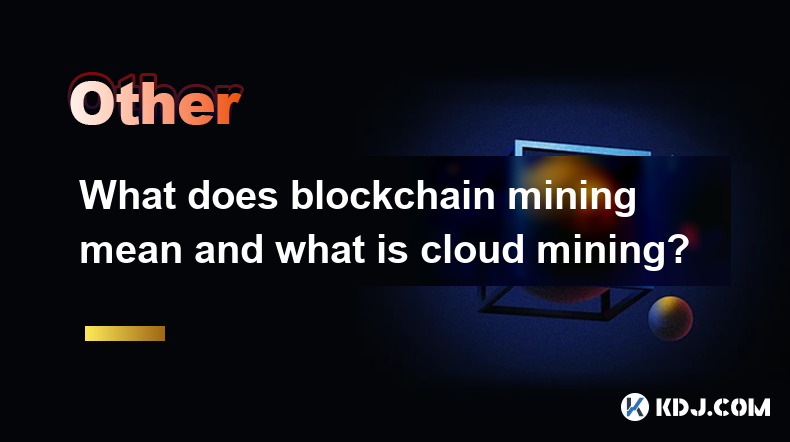-
 Bitcoin
Bitcoin $83,407.2371
-1.63% -
 Ethereum
Ethereum $1,823.1395
-3.06% -
 Tether USDt
Tether USDt $0.9997
-0.02% -
 XRP
XRP $2.0473
-2.23% -
 BNB
BNB $600.1100
-0.49% -
 Solana
Solana $119.7021
-3.88% -
 USDC
USDC $0.9998
-0.01% -
 Dogecoin
Dogecoin $0.1648
-3.39% -
 Cardano
Cardano $0.6519
-2.39% -
 TRON
TRON $0.2368
-0.66% -
 Toncoin
Toncoin $3.8129
-4.99% -
 UNUS SED LEO
UNUS SED LEO $9.3898
-0.23% -
 Chainlink
Chainlink $13.1549
-4.15% -
 Stellar
Stellar $0.2637
-1.07% -
 Sui
Sui $2.4035
1.65% -
 Avalanche
Avalanche $18.5674
-3.45% -
 Shiba Inu
Shiba Inu $0.0...01232
-0.30% -
 Hedera
Hedera $0.1654
0.03% -
 Polkadot
Polkadot $4.0578
-0.51% -
 Litecoin
Litecoin $82.9613
0.22% -
 MANTRA
MANTRA $6.3104
1.76% -
 Bitcoin Cash
Bitcoin Cash $301.4958
-1.14% -
 Bitget Token
Bitget Token $4.5444
-0.98% -
 Dai
Dai $0.9999
-0.01% -
 Ethena USDe
Ethena USDe $1.0000
0.02% -
 Pi
Pi $0.6681
-3.26% -
 Hyperliquid
Hyperliquid $12.3441
-5.68% -
 Monero
Monero $216.6690
-0.88% -
 Uniswap
Uniswap $5.9832
-2.69% -
 Aptos
Aptos $5.2233
-0.17%
What is the "replay attack" of blockchain? How to prevent it?
Replay attacks exploit blockchain vulnerabilities by reusing transaction signatures across chains, but can be mitigated with unique IDs, chain-specific prefixes, and multi-signature schemes.
Mar 30, 2025 at 05:43 pm

Understanding Replay Attacks in Blockchain
A replay attack in the context of blockchain exploits the inherent nature of some cryptographic systems. It involves taking a valid transaction signature from one blockchain and reusing it on another, potentially identical, blockchain. This works because the signature alone doesn't inherently contain information specifying which blockchain it belongs to. The attacker essentially replays a past, successful transaction to achieve the same outcome again, potentially defrauding a victim or manipulating the system. This is particularly relevant in situations involving multiple blockchains or forks.
How Replay Attacks Work: A Step-by-Step Illustration
Imagine a scenario with two blockchains, Chain A and Chain B, both using the same cryptographic algorithm and having similar transaction structures. A replay attack might unfold like this:
- Step 1: Legitimate Transaction: A user sends cryptocurrency on Chain A. This transaction is signed with a private key.
- Step 2: Transaction Capture: The attacker intercepts this signed transaction.
- Step 3: Replay on Chain B: The attacker takes the intercepted signed transaction and broadcasts it on Chain B.
- Step 4: Successful Replay: Because the signature is valid and the transaction structure is compatible, Chain B accepts the transaction, resulting in a duplicate transaction.
The attacker effectively doubles their funds without additional effort, highlighting the vulnerability. The key is that the signature doesn't inherently identify the specific blockchain.
Preventing Replay Attacks: Key Strategies
Several strategies exist to mitigate the risk of replay attacks. These strategies aim to introduce unique identifiers or mechanisms that differentiate transactions across different blockchains.
Unique Transaction IDs: Incorporating unique transaction IDs that include blockchain-specific identifiers can prevent the reuse of signatures. Each transaction would be uniquely identifiable, even if the underlying cryptographic signature is identical. This requires careful design and implementation across all participating nodes.
Chain-Specific Prefixes: Adding a chain-specific prefix to the transaction data before signing can make signatures blockchain-specific. This prefix becomes part of the data that is signed, ensuring that a signature valid on one chain is invalid on another.
Timestamping and Sequencing: Including timestamps and sequence numbers in transactions can help prevent replay attacks, especially when combined with other measures. This makes it clear that a transaction is not a replay of a past transaction. However, this is not a standalone solution.
Multi-signature Schemes: Employing multi-signature schemes can enhance security. Requiring multiple signatures for a transaction increases the difficulty of replay attacks, as the attacker would need to compromise multiple private keys.
Blockchain-Specific Opcodes: Introducing blockchain-specific opcodes within the transaction structure can further differentiate transactions and prevent replay attacks. This requires modifications to the underlying blockchain protocol.
Using Different Cryptographic Algorithms: Employing different cryptographic algorithms or hashing functions across different blockchains is a significant deterrent. This prevents the direct reuse of signatures, even if transaction structures are similar.
The Role of Smart Contracts in Replay Attack Prevention
Smart contracts can play a crucial role in mitigating replay attacks. They can be designed to incorporate checks for unique transaction identifiers or chain-specific data before executing a transaction. This ensures that only legitimate transactions, properly identified for the specific blockchain, are processed. However, the smart contract itself must be carefully designed and audited to prevent vulnerabilities.
Replay Attacks and Blockchain Forks
Replay attacks are especially relevant in the context of blockchain forks. When a blockchain forks, creating two separate chains, the possibility of replay attacks increases significantly. Transactions valid on one chain might be replayed on the other, leading to double-spending or other malicious activities. Careful consideration of replay protection mechanisms is crucial when dealing with forks.
The Importance of Thorough Auditing and Testing
Preventing replay attacks requires a multi-faceted approach. Thorough auditing and testing of blockchain protocols, smart contracts, and transaction mechanisms are vital to identify and address potential vulnerabilities before they can be exploited. Regular security updates and patches are also crucial to keep systems secure against evolving attack vectors.
Frequently Asked Questions
Q: Can replay attacks affect all blockchains equally?
A: No, the susceptibility to replay attacks varies depending on the blockchain's design and implementation. Blockchains with weaker security mechanisms or those using similar cryptographic algorithms are more vulnerable.
Q: Are replay attacks only a theoretical threat?
A: No, replay attacks have been demonstrated in real-world scenarios, though often mitigated quickly. They represent a significant security risk that needs to be addressed proactively.
Q: Is there a single perfect solution to prevent replay attacks?
A: There isn't a single perfect solution. A layered approach combining multiple preventive measures is the most effective strategy.
Q: What happens if a replay attack is successful?
A: A successful replay attack can lead to double-spending, loss of funds, or manipulation of the blockchain's state, depending on the specific context of the attack.
Q: How can users protect themselves from replay attacks?
A: Users can protect themselves by using reputable exchanges and wallets that implement strong security measures against replay attacks, and by staying informed about security updates and best practices.
Q: Are all cryptocurrencies vulnerable to replay attacks?
A: While not all cryptocurrencies are equally vulnerable, many are susceptible if they share similar cryptographic algorithms or lack robust replay protection mechanisms. The risk depends on the specific design and implementation of each cryptocurrency.
Disclaimer:info@kdj.com
The information provided is not trading advice. kdj.com does not assume any responsibility for any investments made based on the information provided in this article. Cryptocurrencies are highly volatile and it is highly recommended that you invest with caution after thorough research!
If you believe that the content used on this website infringes your copyright, please contact us immediately (info@kdj.com) and we will delete it promptly.
- RUVI AI Revolutionizes AI Accessibility with Blockchain Power
- 2025-04-03 11:15:12
- Fidelity Investments Introduces an IRA That Permits Investors to Buy Bitcoin, Ether, and Litecoin
- 2025-04-03 11:15:12
- Whale Alert Detects a Large Bitcoin Transfer Involving 1050 BTC from Binance to an Unknown Wallet
- 2025-04-03 11:10:12
- Democratic Lawmakers Ask US Securities Regulator to Preserve Records of President Trump's Crypto Venture
- 2025-04-03 11:10:12
- Curve Finance Notches Record-Breaking Trading Volumes of Nearly $35 Billion in the First Quarter of 2025
- 2025-04-03 11:05:13
- Coinlist restarts US operations after five-year hiatus
- 2025-04-03 11:05:13
Related knowledge

What are the future development trends of blockchain game development?
Apr 03,2025 at 05:00am
Blockchain technology has revolutionized various industries, and gaming is no exception. As we look to the future, several trends are set to shape the development of blockchain games. These trends not only promise to enhance the gaming experience but also to integrate blockchain technology more seamlessly into the gaming ecosystem. Let's explore these t...

What are the money-making opportunities in the application of blockchain in the medical industry?
Apr 03,2025 at 03:35am
The integration of blockchain technology into the medical industry presents a myriad of money-making opportunities that can revolutionize healthcare systems. Blockchain's inherent characteristics, such as transparency, security, and immutability, make it an ideal solution for various medical applications. By leveraging blockchain, companies can develop ...

What does blockchain mean and how does it apply to digital identity verification?
Apr 03,2025 at 02:21am
Blockchain technology, at its core, is a decentralized and distributed digital ledger used to record transactions across numerous computers. This ensures that the recorded data cannot be altered retroactively without the alteration of all subsequent blocks and the consensus of the network. The concept of blockchain was initially devised for the digital ...

What does blockchain mean and how does it support smart contracts?
Apr 03,2025 at 02:28am
Blockchain technology is a decentralized, distributed ledger that records transactions across numerous computers. It ensures that once data is recorded, it cannot be altered retroactively without the alteration of all subsequent blocks and the consensus of the network. This technology is the backbone of cryptocurrencies like Bitcoin and Ethereum. Blockc...

What does blockchain mean and how is it applied in finance?
Apr 03,2025 at 07:42am
Blockchain is a decentralized and distributed digital ledger used to record transactions across numerous computers. It ensures that each transaction is secure, transparent, and verifiable. The technology behind blockchain was initially developed to serve as the public transaction ledger for the cryptocurrency Bitcoin. However, its potential applications...

What does blockchain mining mean and what is cloud mining?
Apr 03,2025 at 02:01am
Blockchain mining is the process by which new transactions are verified and added to the blockchain ledger. It involves solving complex mathematical problems using computational power, which results in the creation of new cryptocurrency units as a reward. Miners compete to solve these problems, and the first one to find the solution gets to add a new bl...

What are the future development trends of blockchain game development?
Apr 03,2025 at 05:00am
Blockchain technology has revolutionized various industries, and gaming is no exception. As we look to the future, several trends are set to shape the development of blockchain games. These trends not only promise to enhance the gaming experience but also to integrate blockchain technology more seamlessly into the gaming ecosystem. Let's explore these t...

What are the money-making opportunities in the application of blockchain in the medical industry?
Apr 03,2025 at 03:35am
The integration of blockchain technology into the medical industry presents a myriad of money-making opportunities that can revolutionize healthcare systems. Blockchain's inherent characteristics, such as transparency, security, and immutability, make it an ideal solution for various medical applications. By leveraging blockchain, companies can develop ...

What does blockchain mean and how does it apply to digital identity verification?
Apr 03,2025 at 02:21am
Blockchain technology, at its core, is a decentralized and distributed digital ledger used to record transactions across numerous computers. This ensures that the recorded data cannot be altered retroactively without the alteration of all subsequent blocks and the consensus of the network. The concept of blockchain was initially devised for the digital ...

What does blockchain mean and how does it support smart contracts?
Apr 03,2025 at 02:28am
Blockchain technology is a decentralized, distributed ledger that records transactions across numerous computers. It ensures that once data is recorded, it cannot be altered retroactively without the alteration of all subsequent blocks and the consensus of the network. This technology is the backbone of cryptocurrencies like Bitcoin and Ethereum. Blockc...

What does blockchain mean and how is it applied in finance?
Apr 03,2025 at 07:42am
Blockchain is a decentralized and distributed digital ledger used to record transactions across numerous computers. It ensures that each transaction is secure, transparent, and verifiable. The technology behind blockchain was initially developed to serve as the public transaction ledger for the cryptocurrency Bitcoin. However, its potential applications...

What does blockchain mining mean and what is cloud mining?
Apr 03,2025 at 02:01am
Blockchain mining is the process by which new transactions are verified and added to the blockchain ledger. It involves solving complex mathematical problems using computational power, which results in the creation of new cryptocurrency units as a reward. Miners compete to solve these problems, and the first one to find the solution gets to add a new bl...
See all articles
























































































